GRAND PIANO. Delicious, blood-curdling thriller
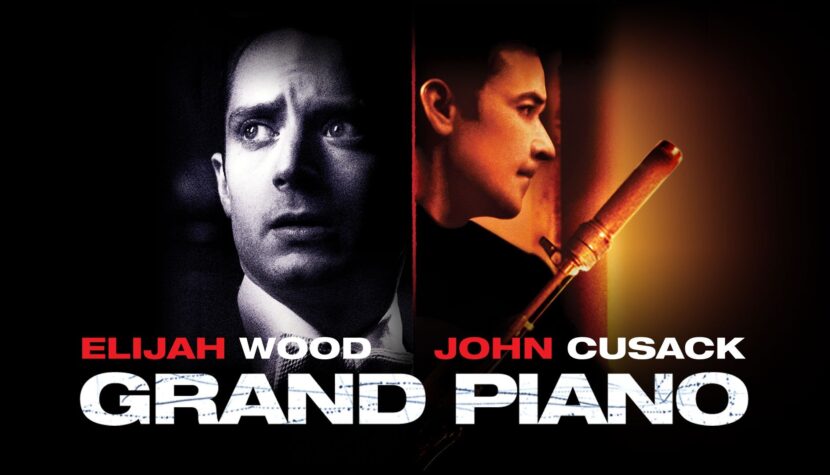
Tom Selznick is a world-renowned pianist who, with a concert in Chicago, aims to prove that stage fright no longer affects him. However, he knows better. Returning after five years, still haunted by the one piece he succumbed to – written by his teacher, La Cinquette, deemed impossible to play. His wife, Emma, a major film star, supports Tom but can capture the audience’s attention more on herself than on her husband’s concert. The conductor, a friend, reassures him, explaining that despite Selznick being the most exceptional pianist he knows, he should relax, as it’s just music.
However, just as the concert begins, as Tom turns the pages of sheet music, he discovers a threat written on them. “Make a mistake, and I’ll shoot you,” words from a mysterious assailant. To prove he’s serious, a red laser dot quickly targets the playing pianist’s hand. Eugene Mira‘s thriller, Grand Piano is based on an absurd premise, enveloped not only in grandeur and elegance but also in incredible self-assurance. Instead of openly mocking the plot’s madness, the creators do everything to elevate seriousness over humor, even though viewers should secretly derive considerable joy from the well-executed work. Rarely does the fear for the protagonist’s life coexist with the fun arising from the danger and the successive attempts to escape a hopeless situation.
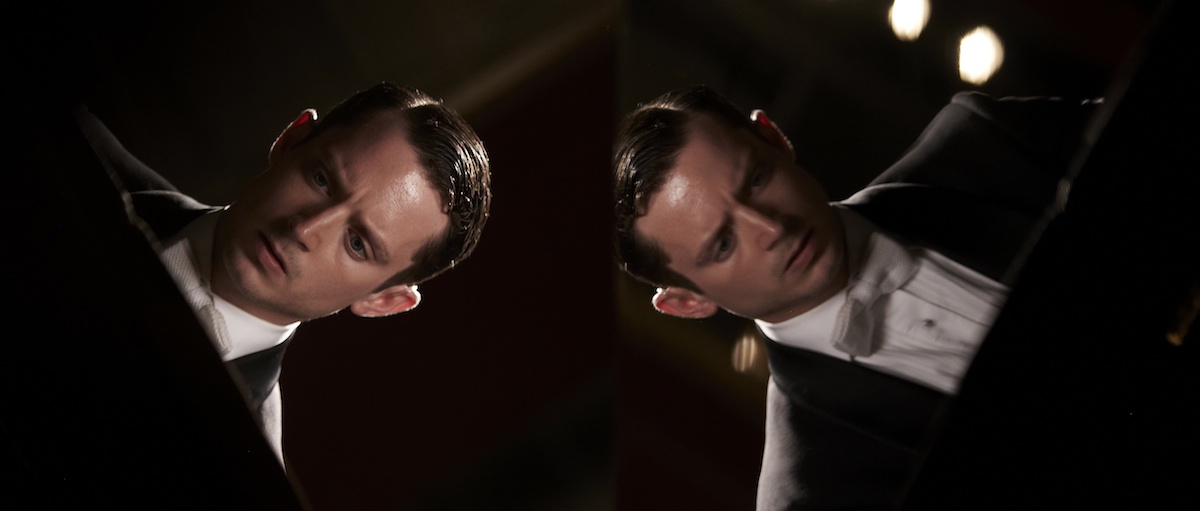
Grand Piano has already been dubbed Speed at the piano by critics, but only on paper do these films seem similar. The concert hall is more than a speeding bus; it carries different connotations, different possibilities, and different constraints. Throughout most of the film, we observe a man sitting at the piano. Therefore, Mira’s work strives to enchant viewers with its form: composition of shots, camera work, split screen (De Palma!), tasteful set design, and the elegance of all other elements. Even the sniper’s voice, heard by Tom through a left earpiece, seems to fit perfectly, not only with the situation but also with the place – calm, non-vulgar (for a while), authoritative, simultaneously inviting conversation and full of admiration for Selznick’s talent. However, there is never any doubt that the tormentor is not joking.
This doesn’t mean we don’t question his mental health when we learn why he targeted the famous pianist. Hitchcockian glamour is complemented by madness typical of Dario Argento. Logic gives way to the film’s frenetic pace, dictated by the increasingly desperate hero. He struggles, continually moving away from and returning to the piano, running in circles between the concert hall and the dressing room. Even while sitting and playing the keys to the audience’s delight, he is torn between his duties as a musician, threats (and conversation) from the sniper, fear for himself and his wife, and attempts to escape the trap. This is most evident during the scene with the mobile phone.
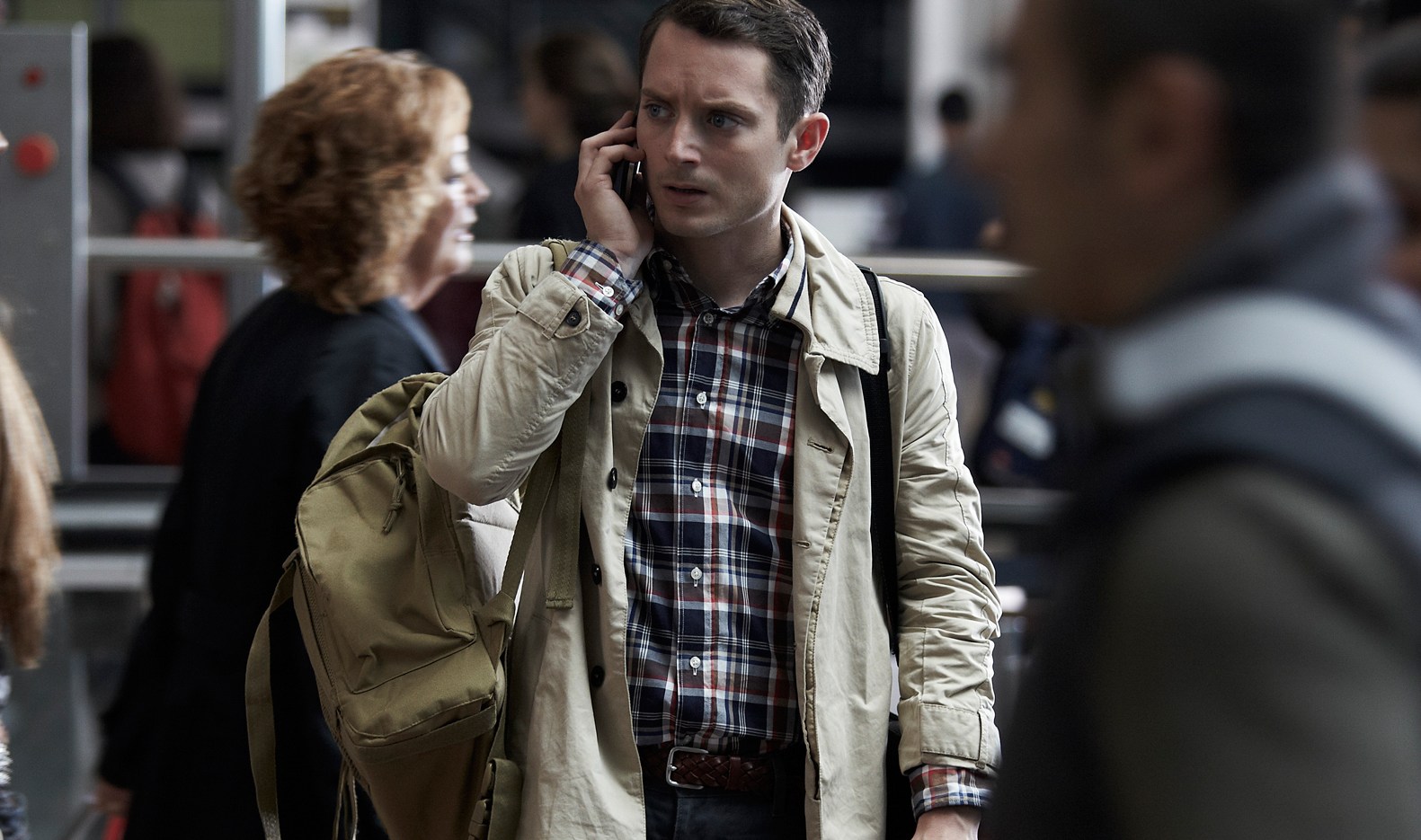
I mentioned the creator of Deep Red, although Mira’s film lacks any bloody scenes typical of the Italian giallo master. Nevertheless, the appearance of extraordinariness is present even before the actual part of the film begins – a prologue with the piano being extracted from the home of a deceased composer, his photo showing a gloomy old face next to the young and lively likeness of Selznick, the fact that the sniper identifies himself with the name of the deceased, a dark-clad insurance agent tasked with ensuring the safety of the instrument, and even a mention of Charles Foster Kane (because there is something elusive diabolical in Welles’ masterpiece). However, Mira does not try to build a horror atmosphere with these clues. He opts for realism – whatever it may be given the plot – although I believe that a certain level of ambiguity would have benefited Grand Piano. Ultimately, the elements I mentioned only serve to explain the mystery behind the actions of the armed tormentor, rather than instill doubt in the viewer regarding the piano and its enchanted music. Without this, the final scene, although brilliantly conceived and executed, lacks the taste of reaching for the unknown, taming the unattainable, for both the protagonist and the audience.
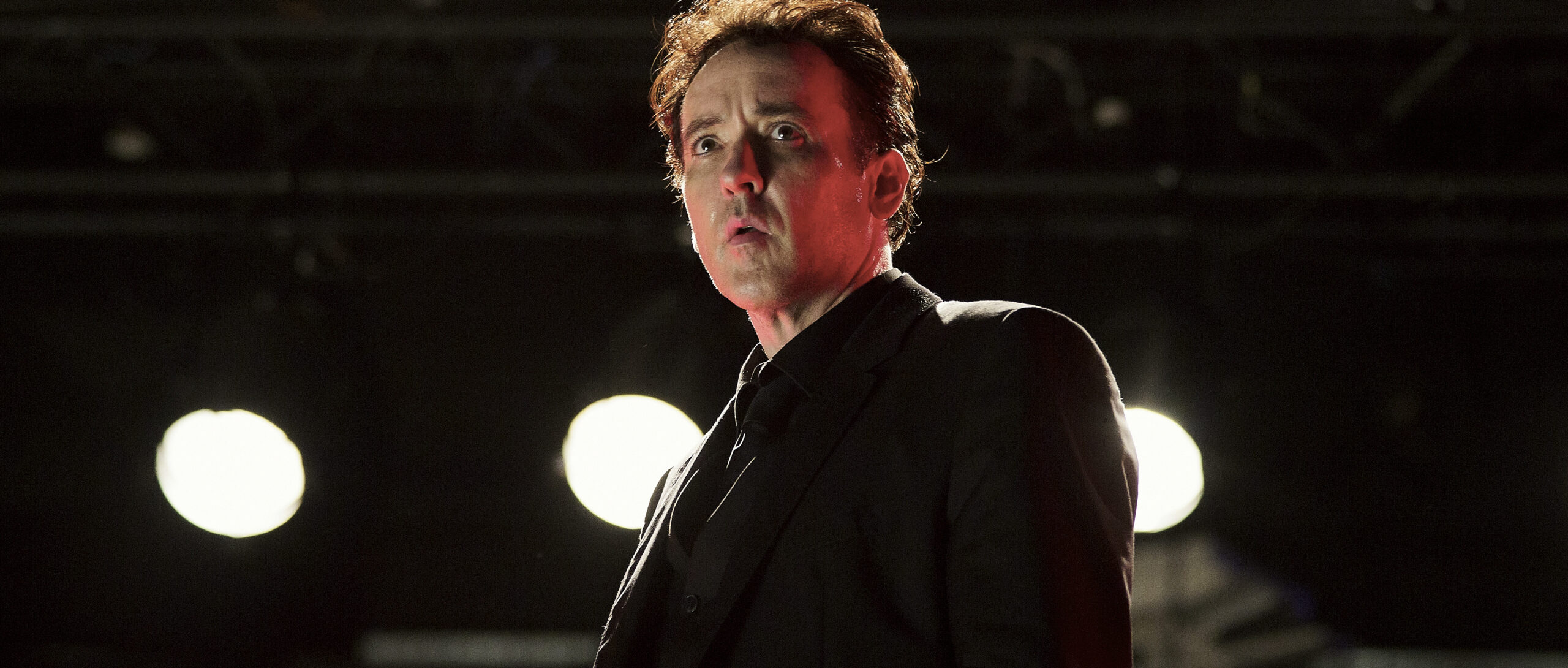
This Spanish thriller – despite featuring American actors – belongs to those where the astute hero must be even sharper to survive because, in reality, only his intelligence (and finger dexterity) can be relied upon. When Tom finally faces his tormentor, it’s hard to believe he can overcome a man with a rifle. But it’s not just about the weapon. Elijah Wood plays the pianist, charming as always, like a hobbit. His opponent, John Cusack, who looks like he stepped out of the first scene of Grosse Pointe Blank – you simply can’t win against someone like him. Both are excellent in their roles. The former dazzles not only with piano playing but also with focus paired with a pre-transcendental state. Cusack surprises mainly as an invisible adversary, using his exceptionally emotionless voice to terrorize the helpless musician. He is as good as Kiefer Sutherland in Phone Booth. It’s also worth mentioning the presence of the long-unseen Alex Winter, memorable as Keanu Reeves’ partner in the Bill and Ted adventures – here, he is brilliantly ambiguous.
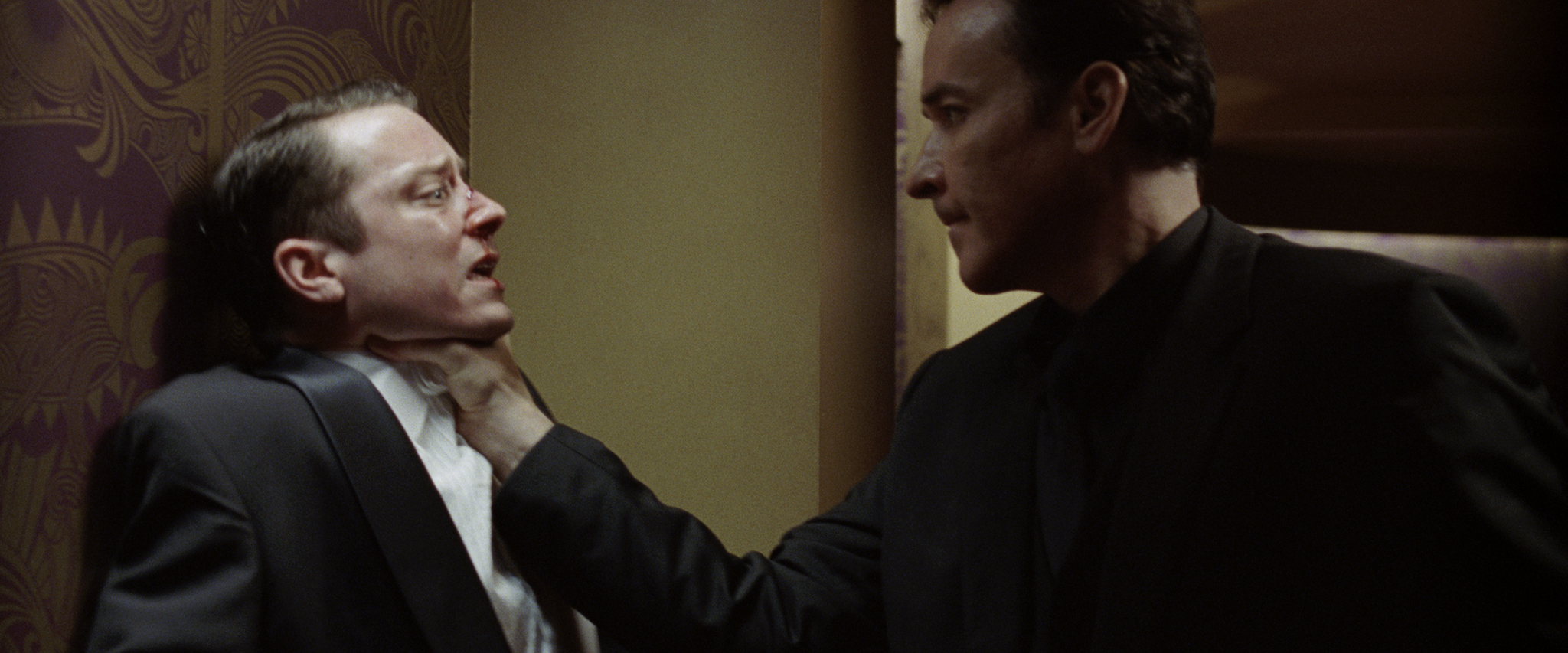
Rarely does a movie’s soundtrack play a more significant role than just a backdrop for the characters’ actions. In Grand Piano, the music seems paramount; it directs the characters, their thoughts, actions, dictates the pace and mood of both the whole story and individual scenes. If someone has trouble figuring out what the character is feeling at a particular moment, just listen to Victor Reyes’ compositions. The real theme of the film turns out to be not the duel but its music – ominous, majestic, yet unrestrained. Therefore, even in the final confrontation, when Tom is no longer at the piano, the music does not fade away.
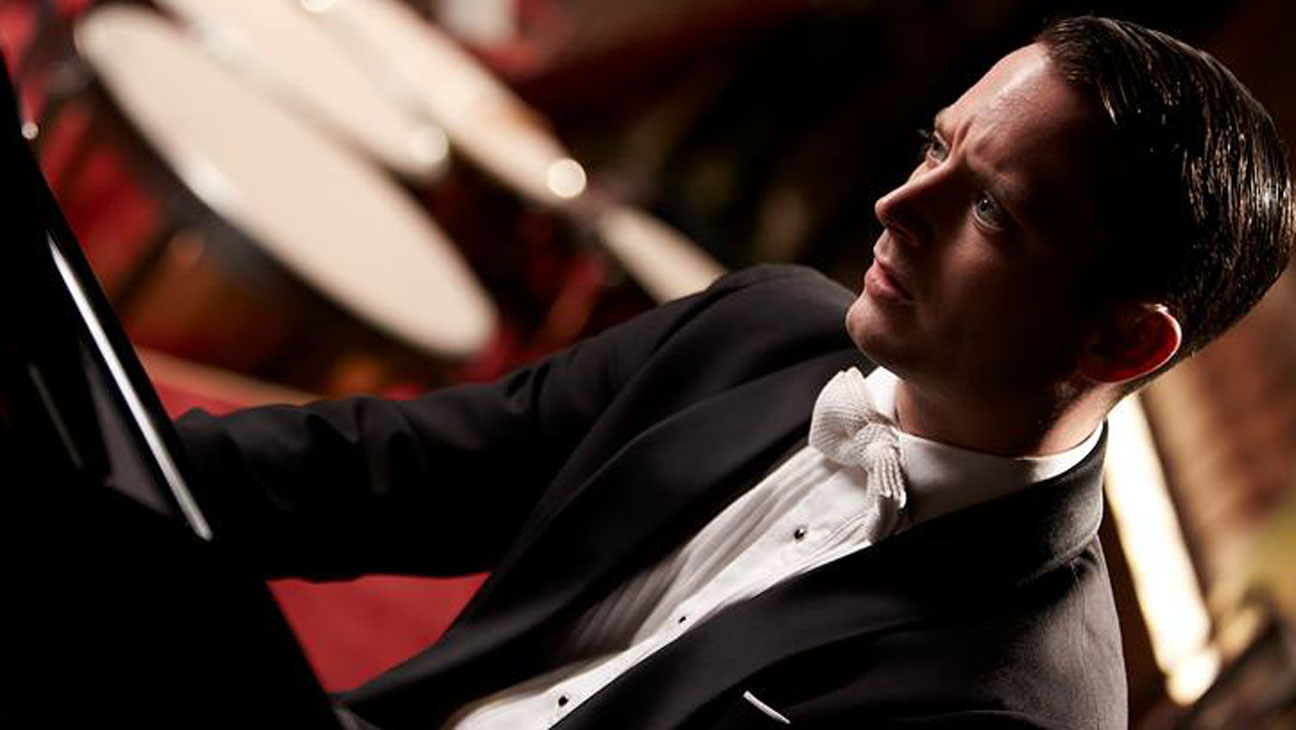
Grand Piano consciously draws on classic Hitchcockian patterns, but instead of remaining a cheap imitation, it goes all out – a modest film transforms into a small work of art, thanks to masterful direction, focusing less on the plot and more on its presentation. A delicious thriller.

